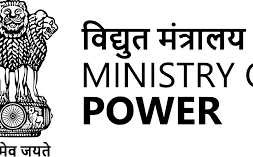
Home solar in Australia may face grid export charges for the greater good
The Australian Energy Market Commission (AEMC) is looking to change the way the power system works now in order to “avoid costly crisis solutions” in a future with more residential solar systems feeding power to the grid.
In a draft determination, the commission mentions the introduction of charges for exporting power from home solar systems when the grid is busy as one of the lowest cost solutions.
Blocking power exports when the grid cannot take it all will reduce the amount of cheaper renewable energy on the system, while expanding the network by building more poles and wires is too expensive and will be reflected in consumer bills.
The draft determination seeks to address the “traffic jams” on the network, which are already occurring and are expected to get worse with the connection of additional solar systems because the grid was initially designed to have power flowing one way. Feedback on it is expected until May 13.
“We can decarbonise the electricity sector faster and cheaper if we connect more small solar customers and make it worthwhile for them to install batteries. But to do that we need to make some changes to the power system,” said Benn Barr, CEO of AEMC.
The reform package proposed by the commission includes changes to the distribution networks’ existing incentives to provide power export services.
Under the proposal, energy export will be recognised as a service to the power system and consumers will get more influence over what export services networks deliver and how efficiently they deliver them.
The package also envisages letting networks offer two-way pricing, like rewarding solar and energy storage system owners for sending electricity to the grid when it is needed and charging for power export when the grid is under strain.
New incentives will encourage customers to invest in battery storage or consume the power they generate at busy times on the grid.
In addition, the commission wants to allow each network to design different price options to suit their capability, customer preferences and government policies. This may allow customers to choose free export up to a limit or paid premium services that guarantee export at any time.
Networks might offer grandfathering for existing solar owners or choose community batteries.
“Letting networks give customer incentives to use the system better means supply and demand on the grid can be smoothed out over the course of the day. It helps address large amounts of solar being exported in the middle of the day when it benefits the system least,” said Barr.
This proposal does not introduce default charges for exporting power, the commission stressed.
If a network business decided to have export charging, they would need to consult extensively with customers and get the green light from the Australian Energy Regulator for a transition plan detailing how this would be done.
CALCULATIONS
The AEMC says that even with an export charge in place, a solar system of 4 kW to 6 kW would still earn on average AUD 900 (USD 684m/EUR 579.3m) a year, roughly AUD 70 less than now.
Rewarding the owners of such systems for self-consuming power or other measures supporting the stability of the grid can further improve the result.
At the same time, blocking power exports when the grid is busy for 50% of the time may reduce a 4 kW-6 kW solar system’s earnings by more than AUD 300 for a year. Blocking exports for 10% of the time will reduce earnings by roughly as much as export charges would.
“The Commission modelled the potential impact on customer bills if networks did introduce export charges. We found that 80% of customers would see their bills drop because they would no longer pay for solar export services they weren’t using,” the AEMC noted.















